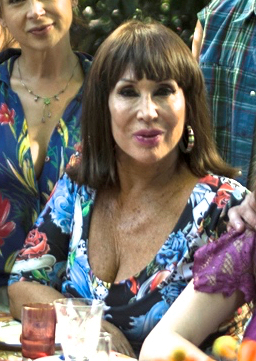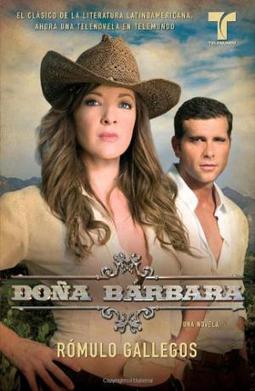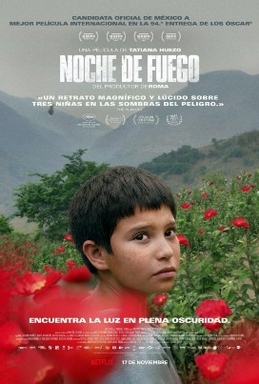
The music of Argentina includes a variety of traditional, classical, and popular genres. According to the Harvard Dictionary of Music, Argentina also "has one of the richest art music traditions and perhaps the most active contemporary musical life.

Carlos Gardel was a French-born Argentine singer, songwriter, composer and actor, and the most prominent figure in the history of tango. He was one of the most influential interpreters of world popular music in the first half of the 20th century. Gardel is the most famous popular tango singer of all time and is recognized throughout the world. Described variously as a baritone or tenor because of his wide vocal range, he was known for his rich voice and dramatic phrasing. Together with lyricist and long-time collaborator Alfredo Le Pera, Gardel wrote several classic tangos.

La Llorona is a vengeful ghost in Mexican folklore who is said to roam near bodies of water mourning her children whom she drowned in a jealous rage after discovering her husband was cheating on her. Whoever heard her crying either suffer misfortune or death and their life become pitiful and unsuccessful in every field.

The bogeyman is a mythical creature used by adults to frighten children into good behaviour. Bogeymen have no specific appearances and conceptions vary drastically by household and culture, but they are most commonly depicted as masculine or androgynous monsters that punish children for misbehaviour. The bogeyman, and conceptually similar monsters can be found in many cultures around the world. Bogeymen may target a specific act or general misbehaviour, depending on the purpose of invoking the figure, often on the basis of a warning from an authority figure to a child. The term is sometimes used as a non-specific personification of, or metonym for, terror, and sometimes the Devil.
Some films feature recognizable dance forms, demonstrating them, shedding light on their origin, or being the base of a plot.

The Spanish language employs a wide range of swear words that vary between Spanish speaking nations and in regions and subcultures of each nation. Idiomatic expressions, particularly profanity, are not always directly translatable into other languages, and so most of the English translations offered in this article are very rough and most likely do not reflect the full meaning of the expression they intend to translate.[c]

Raúl Alberto Antonio Gieco, better known as León Gieco is an Argentine folk rock performer, composer and interpreter. He is known for mixing popular folkloric genres with Argentine rock, and lyrics with social and political connotations. This has led to him being called "The Argentine Bob Dylan".

Ana María Casanova, known by her stage name Moria Casán, is an Argentine actress and TV personality. Casán made her theatre debut in 1970, and quickly became one of the country's leading vedettes during Argentina's Golden Age of revue. Her sex symbol status was further cemented during the late 1970s and 1980s, as she starred in various sexual comedy films alongside Alberto Olmedo, Jorge Porcel and Susana Giménez. Since the mid-1980s, Casán has also established herself as an important TV personality, hosting various sketch comedy programs and talk shows throughout the years. Most recently, Casán was a judge in the popular TV competition Bailando por un Sueño from 2006 to 2017. She currently hosts the TV show Incorrectas and continues starring in several theatrical productions.

"The Wolf and the Seven Young Goats" is a fairy tale collected by the Brothers Grimm and published in Grimm's Fairy Tales. It is of Aarne-Thompson type 123 "The Wolf and the Kids".
The Bird of Truth is a Spanish fairy tale collected by Cecilia Böhl de Faber in her Cuentos de encantamiento. Andrew Lang included it in The Orange Fairy Book.
Alfredo Zitarrosa was a Uruguayan singer-songwriter, poet and journalist. He specialized in Uruguayan and Argentinean folk genres such as zamba and milonga, and he became a chief figure in the nueva canción movement in his country. A staunch supporter of Communist ideals, he lived in exile between 1976 and 1984. He is widely regarded as one of the most influential singer-songwriters of Latin America.
Son amores is an Argentine telenovela produced by Pol-ka and issued by Canal 13 in the year 2002 and in the year 2003. It stars Mariano Martínez, Nicolás Cabré, Florencia Bertotti, Miguel Ángel Rodríguez and Millie Stegman. It is the telenovela of Pol-ka most awarded with 6 Martín Fierro Awards, 5 Clarín Awards and an INTE award.

Doña Bárbara is a Spanish-language telenovela produced by Hugo León Ferrer for Telemundo in 2008–2009. It is based on the 1929 Venezuelan novel Doña Bárbara by Rómulo Gallegos.
José Bragato was an Italian-born Argentine cellist, composer, conductor, arranger and musical archivist who, in his early career, was principal cellist in the Colón Theatre orchestra in Buenos Aires, Argentina. Apart from his involvement in classical music he also performed for many years in a number of Ástor Piazzolla's Nuevo tango ensembles where his cello solos, which had never before featured in tango, put him in the vanguard of Nuevo tango from its birth in the 1950s. Since then he has done numerous and varied arrangements of Piazzolla's compositions.

Aurora is a Spanish-language telenovela produced by the United States-based television network Telemundo. It starred Sara Maldonado, Eugenio Siller, and Jorge Luis Pila. As part of the 2010–11 season, Telemundo aired the series from November 1, 2010 to May 20, 2011 weeknights at 8pm/7pm central, replacing El Clon. As with most of its other telenovelas, the network broadcasts English subtitles as closed captions on CC3.

Tini: The Movie is an Argentine-Spanish–Italian film created by Ramón Salazar, is a film set in an alternative universe from that of the television series Violetta. Martina Stoessel, Jorge Blanco, Mercedes Lambre, Clara Alonso and Diego Ramos reprise their roles from the series. The film also stars Adrián Salzedo, Sofia Carson and Ángela Molina. It premiered on 6 May 2016 in Spain and 12 May 2016 in Italy. In Argentina, it premiered on 2 June 2016. In the United States, it was released digitally on 6 December 2016.
Go! Live Your Way is an Argentine musical romance television series created by Sebastián Mellino. The story follows a musically skilled teenager, Mía Cáceres, who wins a scholarship to study at a prestigious academy, where her path to achieving her goal will not be easy, since she will have to face the injustices that stand between her and her dream. In Season 2, she sets out looking for her father. The series, directed by its creator Sebastián Mellino, stars Pilar Pascual, Renata Toscano Bruzon, José Giménez Zapiola, Santiago Sáez, Gastón Ricaud and Laura Azcurra, as well as Axel Muñiz, Carmela Barsamián, Paulo Sánchez Lima, María José Cardozo, María José Chicar, Bautista Lena, Manuel Ramos, Daniel Rosado, Simón Hempe, Carolina Domenech and Antonella Carabelli. It is the second Argentine Netflix Original Series after Edha.

Prayers for the Stolen is a 2021 Mexican drama film directed and written by Tatiana Huezo, which adapts Jennifer Clement's novel Prayers for the Stolen.

Soher El Sukaria is a Lebanese-born Argentine politician. She was a member of the Argentine Chamber of Deputies elected in Córdoba Province from 2019 to 2023. A member of Republican Proposal, El Sukaria previously served as a member of the Córdoba Provincial Legislature from 2015 to 2019.
The Bird that Spoke the Truth is a New Mexican folktale. It is related to the motif of the calumniated wife and classified in the international Aarne-Thompson-Uther Index as type ATU 707, "The Three Golden Children".













